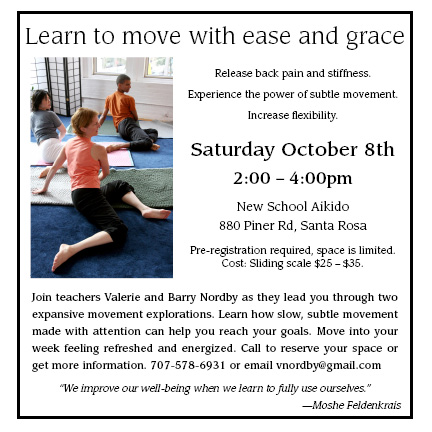Dr. Terry Wahls learned how to properly fuel her body. Using the lessons she learned at the subcellular level, she used diet to cure her MS and get out of her wheelchair.
Category Archives: The Nine Essentials
Optical illusion dampens arthritis pain – latimes.com
In the study presented by UCSD neuroscientist Laura Case this week in Washington, eight subjects suffering from severe osteo- or rheumatoid arthritis sat in front of a mirrored box and extended one of their hands. A researcher extended his hand over the subjects hand and asked the subject to move her hand slowly. The researcher, meanwhile, mimicked the subjects hand movement.
The subject, seeing only the researchers hand in the mirror, saw a young, healthy hand performing movements fluidly and without pain or difficulty. And when asked about their hands level of pain after the exercise, subjects rated their pain, on average, 1.5 points lower, on a scale of 1 to 10, than it had been at the outset. Some had a 3-point reduction in pain, said Case.
Movement Workshop Saturday October 8th
 Join teachers Valerie and Barry Nordby as they lead you through two expansive movement explorations. Learn how slow, subtle movement made with attention can help you reach your goals. Move into your week feeling refreshed and energized. Call to reserve your space or get more information. 707-578-6931 or email barry@somaticnirvana.com
Join teachers Valerie and Barry Nordby as they lead you through two expansive movement explorations. Learn how slow, subtle movement made with attention can help you reach your goals. Move into your week feeling refreshed and energized. Call to reserve your space or get more information. 707-578-6931 or email barry@somaticnirvana.com
The lessons we’re teaching will help you find and release tension in your chest, make bending and reaching easier, and explore moving from lying to sitting more gracefully. It’d be great to see you there. Please pass this along if you know someone else who might be interested.
Pre-registration required, space is limited.
Date: October 8, 2011. 2-4 pm
Location: New School Aikido, Santa Rosa
Cost: Sliding scale $25 – $35.
Schedule Negative Time & Worry Less | Health Freedom Alliance
Pencil in 30 minutes a day to wallow in your anxieties, study suggests
For those concerned with shedding some of their anxieties, it seems planning a certain time every day to worry may help stop the stress-out cycle.
When people with adjustment disorders, burnout or severe work problems used techniques to confine their worrying a single, scheduled 30- minute period each day, they were better able to cope with their problems, a new study by researchers in the Netherlands finds.
The study made use of a technique, called “stimulus control,” that researchers have studied for almost 30 years. By compartmentalizing worry — setting aside a specific half-hour period each day to think about worries and consider solutions, and also deliberately avoiding thinking about those issues the rest of the day — people can ultimately help reduce those worries, research has shown.
“When we’re engaged in worry, it doesn’t really help us for someone to tell us to stop worrying,” said Tom Borkovec, a professor emeritus of psychology at Penn State University. “If you tell someone to postpone it for a while, we are able to actually do that.”
via Schedule Negative Time & Worry Less | Health Freedom Alliance.
Mini-workshop Sunday March 20th
Join us for a mini-workshop with two movement lessons taught by Barry and Valerie Nordby, this Sunday March 20th, 2011. This is a benefit for New School Aikido Santa Rosa and will be held at the dojo. There are still a few spots available. Call or email if you’d like to attend.
Click below for a flier with details:
tml-atm_workshop_2010-03-20-sm
